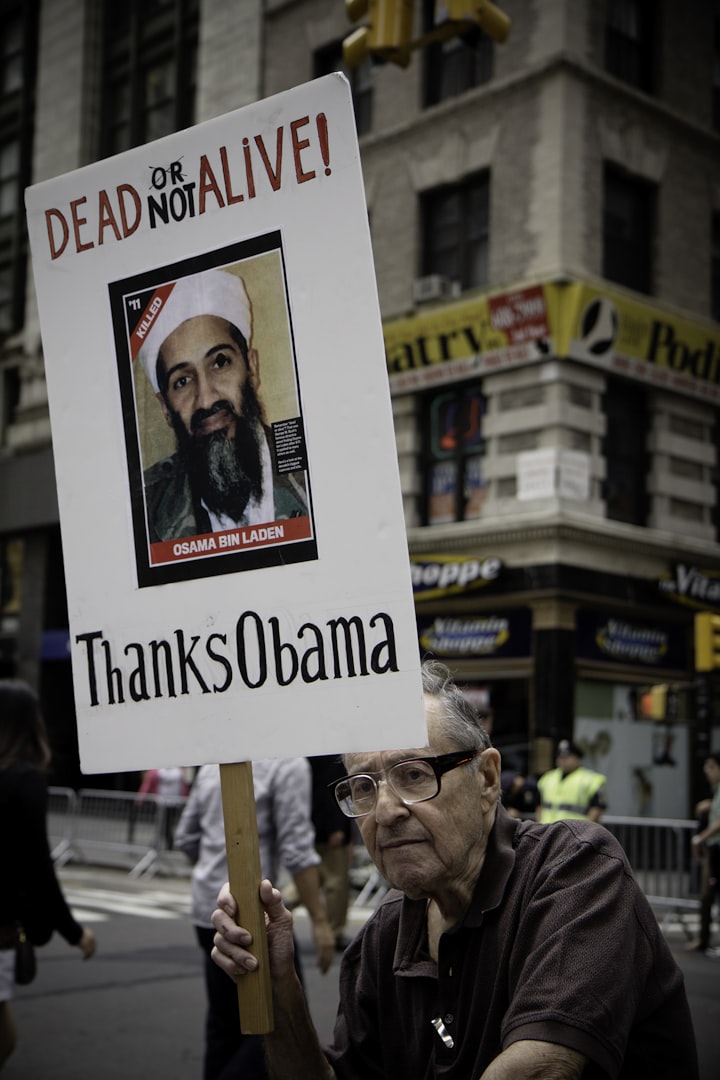The Assassination of Osama Bin Laden
Operation Neptune

On May 2, 2011, the world watched in anticipation as a secret operation unfolded deep within Pakistan. The target is Osama Bin Laden, the famed terrorist mastermind. The US military, led by President Barack Obama, carried out a covert mission. The operation, codenamed "Neptune Spear," would end with the assassination of one of modern history's most sought individuals.
The narrative of Osama Bin Laden's death began well before that tragic night. Born from an affluent Saudi Arabian family, Bin Laden rose to prominence as the creator of al-Qaeda, a radical Islamist organization blamed for multiple acts of terrorism around the world, most notably the September 11, 2001 attacks on the United States. He evaded detection for nearly a decade, hiding in Afghanistan's rough terrain before seeking refuge in the Pakistani city of Abbottabad.
When President Barack Obama entered office in 2009, he made it plain that apprehending or killing Bin Laden was a high goal for his government. Over the next two years, intelligence agencies worked feverishly to find the elusive terrorist leader. Their efforts eventually led them to a location in Abbottabad, where Bin Laden was believed to be hiding.
The decision to launch Operation Neptune Spear was not taken lightly. The risks were immense, both politically and militarily. A covert operation deep inside Pakistan's territory carried the potential for serious diplomatic fallout if it were to be discovered. Additionally, the compound itself presented numerous challenges, including its fortified walls and the possibility of armed resistance from Bin Laden's associates.
In the weeks leading up to the operation, President Obama convened numerous meetings with his national security team to weigh the options. After careful deliberation, he gave the green light for the mission to proceed. On the night of May 1, 2011, a team of Navy SEALs departed from a base in Afghanistan aboard Black Hawk helicopters, bound for Abbottabad.
The operation was executed with precision and skill. Under the cover of darkness, the SEAL team descended upon the compound, swiftly neutralizing any resistance they encountered. As they made their way through the labyrinthine corridors of the building, they finally reached their target: Osama Bin Laden.
In a brief but intense firefight, Bin Laden was fatally wounded by the SEAL team. His death marked the end of a manhunt that had spanned nearly a decade and brought closure to the families of the victims of 9/11. In a televised address to the nation, President Obama announced the success of the operation, declaring, "Justice has been done."
The aftermath of Bin Laden's assassination was met with both jubilation and apprehension. While many hailed it as a significant victory in the fight against terrorism, others expressed concerns about the legality of the operation and its implications for international law. Questions also arose about Pakistan's role in harboring Bin Laden and whether elements within the country's government had been complicit in his hiding.
Despite these lingering questions, the death of Osama Bin Laden represented a turning point in the global war on terror. It demonstrated the United States' unwavering commitment to pursuing justice for those who seek to do harm to innocent civilians. It also served as a reminder that no individual, no matter how elusive, is beyond the reach of justice.
In the years since Operation Neptune Spear, the fight against terrorism has continued unabated. While Bin Laden's death dealt a significant blow to al-Qaeda, the threat of terrorism persists in various forms around the world. The events of that fateful night serve as a testament to the bravery and dedication of the men and women who risked their lives to bring a notorious terrorist to justice.
As the world reflects on the legacy of Osama Bin Laden, one thing remains clear: his death may have brought closure to some, but the fight against extremism is far from over. It is a battle that requires vigilance, determination, and unwavering resolve. And as long as there are those who seek to sow fear and division, the quest for peace and justice will continue.
Operation Neptune Spear will forever be remembered as a pivotal moment in the history of the war on terror. It was a mission fraught with peril, yet executed with remarkable precision and courage. And while the world may never fully understand the complexities of that night, one thing is certain: the death of Osama Bin Laden marked a significant victory in the fight against terrorism, and a beacon of hope for a safer and more secure world.
About the Creator
Sahil Lathwal
I'm Sahil, a passionate writer. My voice weaves stories, emotions, and melodies into an enchanting tapestry. Welcome to my world of creativity and expression. 🎶📝🎤





Comments
There are no comments for this story
Be the first to respond and start the conversation.